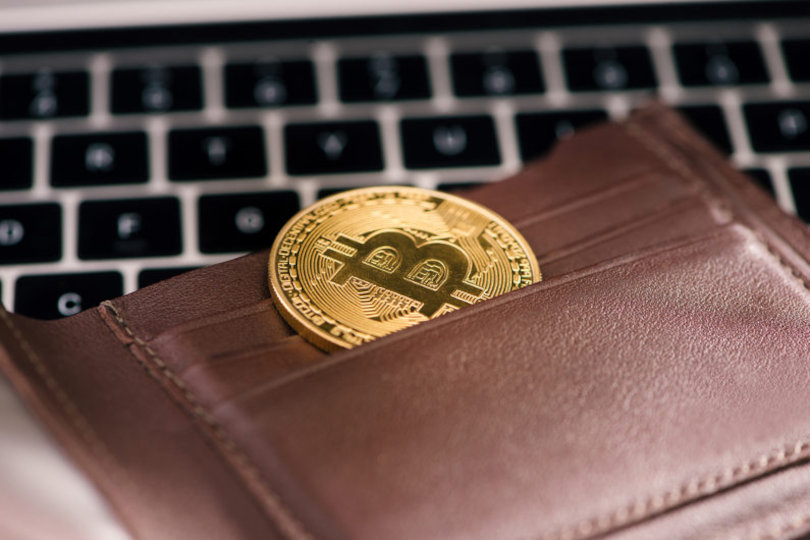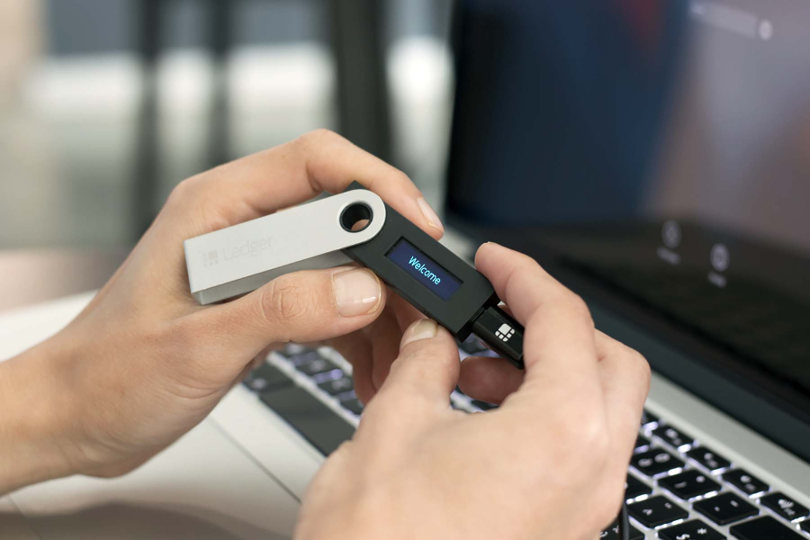[ad_1]
We are hearing more and more about cryptocurrencies like Bitcoin and Ethereum, which are growing in popularity as they evolve along with blockchain technology. Unlike its start, cryptocurrencies are no longer reserved only for the privileged ones. Everyone can now own crypto, trade them for another crypto or money, purchase other things with it, etc.
However, to be able to do any of these actions and own blockchain-based cryptocurrencies, you will need to have a blockchain wallet and understand how it works. To help you make the most of cryptocurrency development, this article will provide you with the most common reasons why someone would use a blockchain wallet and offer you different types of these digital wallets.

But, before we go into it, let’s respond first to why someone would consider using the blockchain wallet in the first place. We’re all aware of how banking systems are complicating even the simplest transaction, from being too slow to making you utilize an intermediary. With blockchain wallets, there is no need to wait up for several days to complete the transactions, involve a third party, or face any of the issues you’d typically face when sending the money through a bank.
Blockchain Wallet
So, what is a blockchain wallet? It is a cryptocurrency wallet allowing users to manage different cryptos, whether it’s Bitcoin, Ethereum, or something else. A blockchain wallet helps people exchange their funds seamlessly. Transactions made with a blockchain wallet are secure because they are cryptographically signed.
You can access your crypto wallet from all web and mobile devices, while your privacy and identity are being protected at all times. These digital wallets provide users with all features necessary to perform safe and secure transactions and fund exchanges between various parties, always leaving the intermediary out of the picture.
You can think of the blockchain wallet as sending or receiving money through PayPal or a similar gateway, but instead of traditional money, you are using cryptocurrencies. There are numerous blockchain wallets available to you, such as Electrum, Jaxx, Blockchain info, Samurai, Mycelium, etc. The best choice for you will depend on your needs and the level of security you require.
How Blockchain Wallets Work
To understand the security and functionality of blockchain wallets, we have to talk about private and public keys first. Each time you create a new blockchain wallet, you will be given a private key and a public key that is linked to your wallet. You can give your public key to anyone to receive the funds from them, but your private key needs to stay a secret.
Think of the private key as your password. You should avoid any possibility of it getting hacked or violated in any way. The objective of the private key is to use it when spending your funds. If someone manages to access your private key, your account will probably become compromised and you can even lose all your cryptocurrency funds with just one click.

Main Features
There are many features that make blockchain wallets so appealing to a large group of people. These are only some of the main features that you’ll want to know about:
- Simplicity. It works just like any other software or a wallet you use for your daily transactions.
- Strong security. If you take care of securing your private key, you will not have to worry about any other aspect of your blockchain wallet.
- Allows you to send money across the entire world without the help of an intermediary.
- Low transaction fees. Compared to traditional bank fees, transferring funds via blockchain wallets is almost free.
- Allows transactions across different cryptocurrencies. You can convert currencies without any issues.
Blockchain Wallet Types
Typically, blockchain wallets are divided into two main categories – hot wallets and cold wallets. Hot wallets allow cryptocurrencies to be transferred very quickly, but they are only available online. Examples of hot wallets are Coinbase and Blockchain.info. On the other hand, cold wallets allow for the transactions to be signed offline and disclosed online. Cold wallets are not stored in the cloud or the internet but are maintained offline to ensure high security. The most popular examples are Trezor and Ledger.
Both of these options have their upsides and downsides. If you are seeking maximum security, you might consider cold wallets, but hot wallets will be easily accessible to you at all times. As said, depending on your needs and the security you require, you will need to opt for one of these two blockchain wallet types.
When talking about Trezor, it is important to keep in mind that it’s considered the best Ethereum wallet currently on the market. After all, the cryptocurrency you will use will have a great impact on the blockchain wallet you should choose for yourself. If you are seeking an Ethereum wallet, you should also consider Metamask, Ledger Nano S, and Exodus.
[ad_2]
Source link


